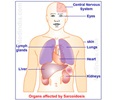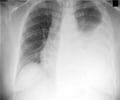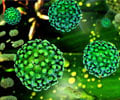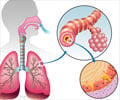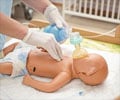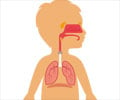Asthma
Perhaps the most commonly discussed respiratory disease after the common cold is asthma. The word asthma is derived from a Greek work meaning "breathlessness" or "panting", both of which accurately describe an asthma attack. It is, however, not just another "breathing problem".
To physicians who treat asthma, it is a serious medical condition" untreated asthma can be fatal.

Asthma is a condition in which the airways of the lungs become either narrowed or completely blocked, obstructing normal breathing. This obstruction of the lungs, however, is reversible, either spontaneously or with medication. That is why asthma is technically called Reversible Obstructive Airway Disease (ROAD)

Air reaches the lung through the windpipe (trachea), which divides into two large tubes (bronchi), one for each lung. Each bronchi further divides into many little tubes (bronchioles), which eventually lead to tiny air sacs (alveoli), in which oxygen from the air is transferred to the bloodstream, and carbon dioxide from the bloodstream is transferred to the air.
Although everyone's airways have the potential for constricting in response to allergens or irritants, the asthmatic's airways may become obstructed by constriction of the muscles surrounding the airway or inflammation and swelling of the airway or increased mucus production which clogs the airway.
Once the airways have become obstructed, it takes more effort to force air through them and breathing becomes laboured. This forcing of air through constricted airways can make a whistling sound, called wheezing. Irritation of the airways by excessive mucus may also provoke coughing.
Because exhaling through the obstructed airways is difficult, too much stale air remains in the lungs after each breath. This decreases the amount of fresh air which can be taken in with each new breath, so not only is there less oxygen available for the whole body, but more importantly, the high concentration of carbon dioxide in the lungs causes the blood supply to become acidic. This acidity in the blood may rice to toxic levels if the asthma remains untreated.
Asthma episodes can be triggered by a variety of factors, most notably allergens, infections, environmental pollutants, and nonspecific stimuli such as exercise and emotional states.
Between 50 and 70 per cent of adults with asthma suffer from allergies. In children under three years of age, viral infections are likely to be the most common trigger. After three years, allergies also begin to play an increasing role as a trigger. After 20 years of age, occupational exposure to toxic substances and allergens also can be important triggers for asthma.
Common allergens associated with asthmatic responses are:
Foods:
Nuts, peanuts, chocolate, eggs, citrus fruits, milk
Plants or plant products:
Pollens, grasses, mold spores
Animal or insect materials:
Dust mites, animal dangers, feathers, canine or feline saliva Numerous scientific studies have shown that avoidance of specific allergens in patients with asthma who have been previously sensitized will result in improved asthma symptoms and decreased medication requirements.





